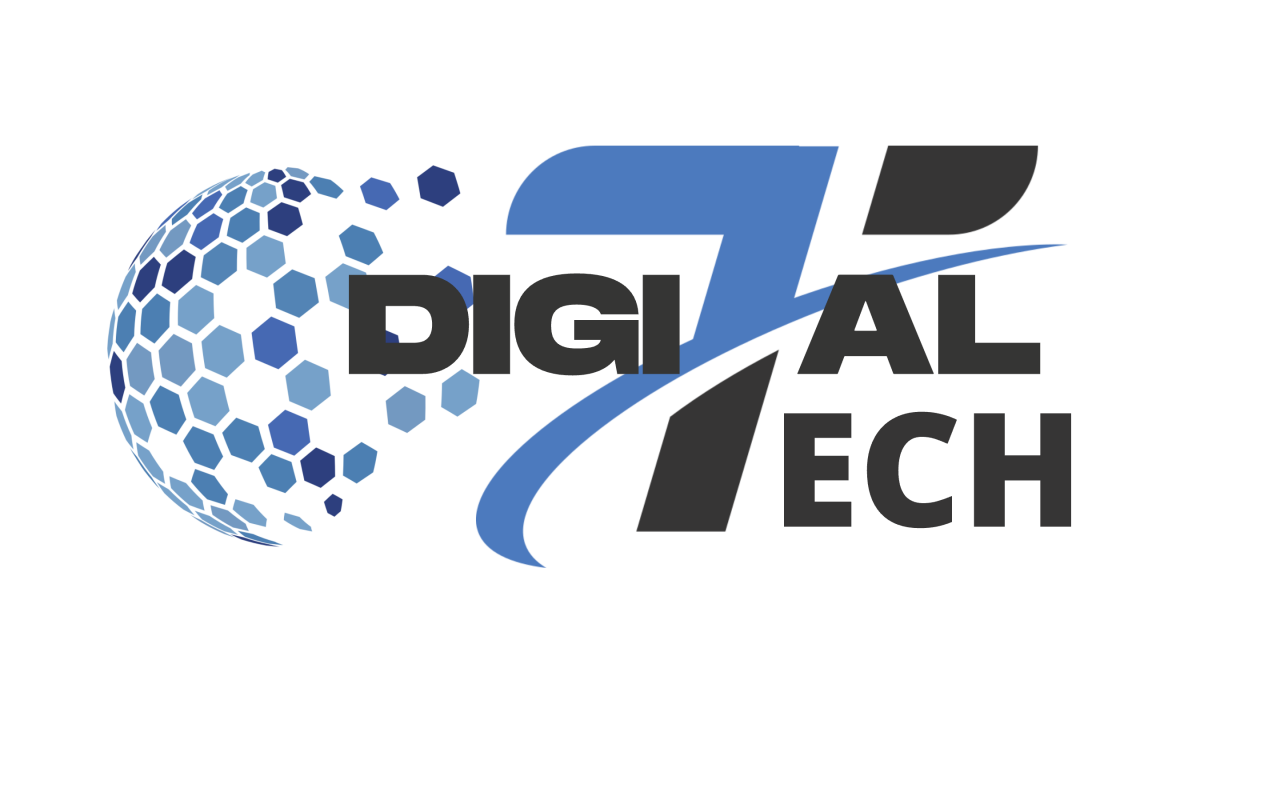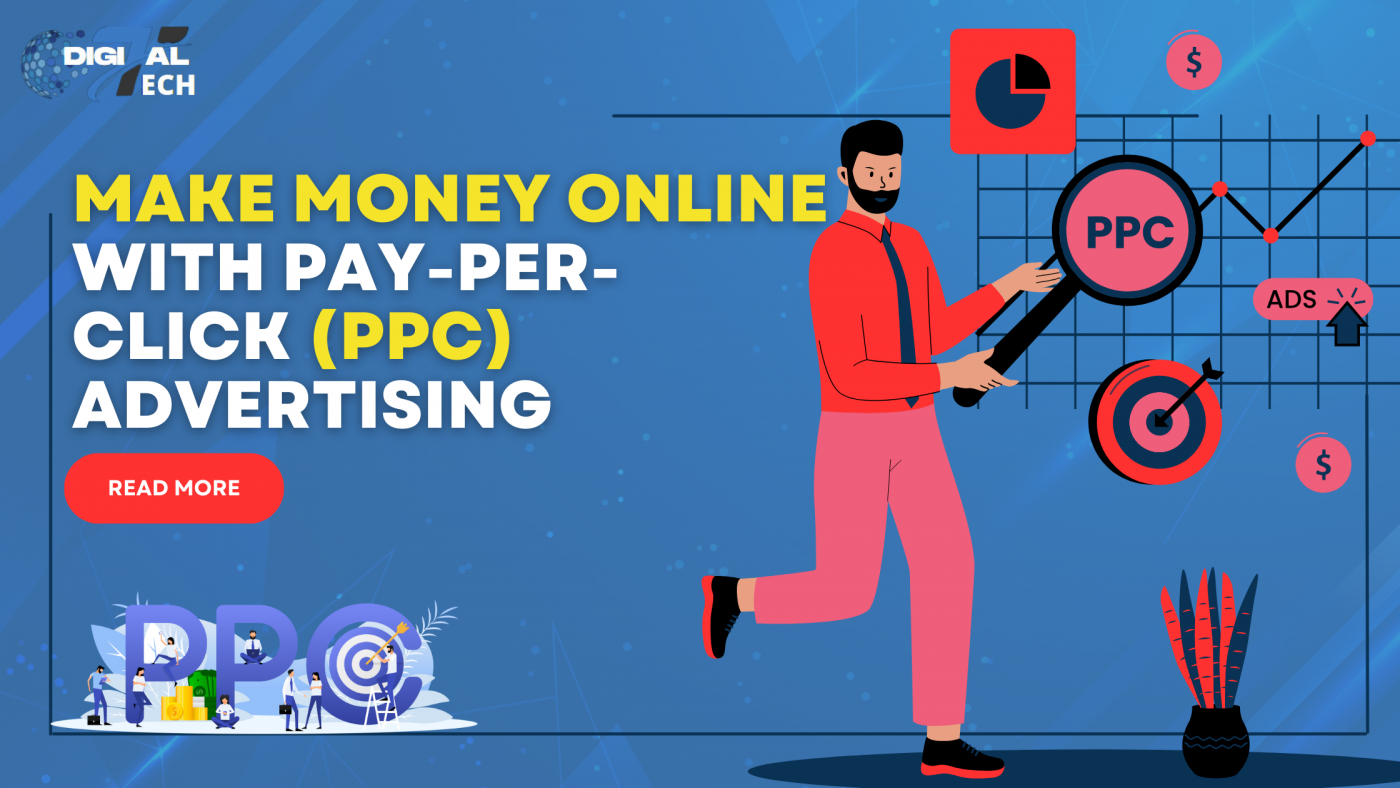With the pay-per-click advertising strategy, marketers can improve their reach by having to pay each time a customer clicks on one of their online advertisements. Paid search ads are among the most popular kinds of PPC advertising. They show up when users use search engines like Google to look for certain keywords. The top strategies to monetize pay-per-click advertising are listed below.
1. What is PPC? PPC Advertising: How Does It Operate?
With pay-per-click (PPC) digital marketing, marketers are charged a fee each time one of their ads is clicked. It’s a technique for purchasing website traffic and is frequently applied to target particular keywords and phrases in search engine advertising.
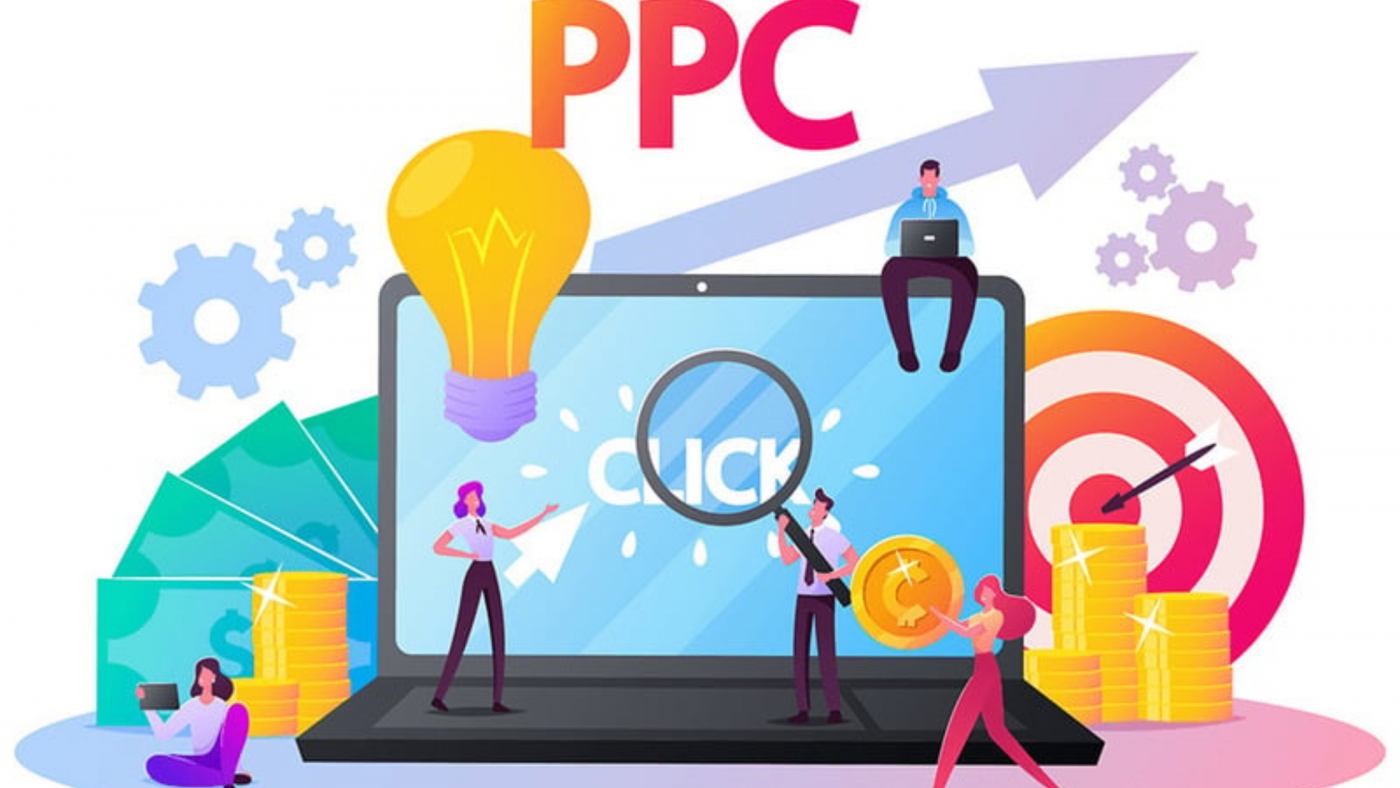
What is PPC? PPC Advertising: How Does It Operate?
The purpose of pay-per-click (PPC) advertising is to drive traffic to an advertiser’s website and generate leads or sales. PPC advertising works by having advertisers bid on specific keywords and phrases, create ads that target those keywords, and pay a fee each time someone clicks on their ad. The ads are displayed on search engine results pages or other websites.
2. Pay-Per-Click Models
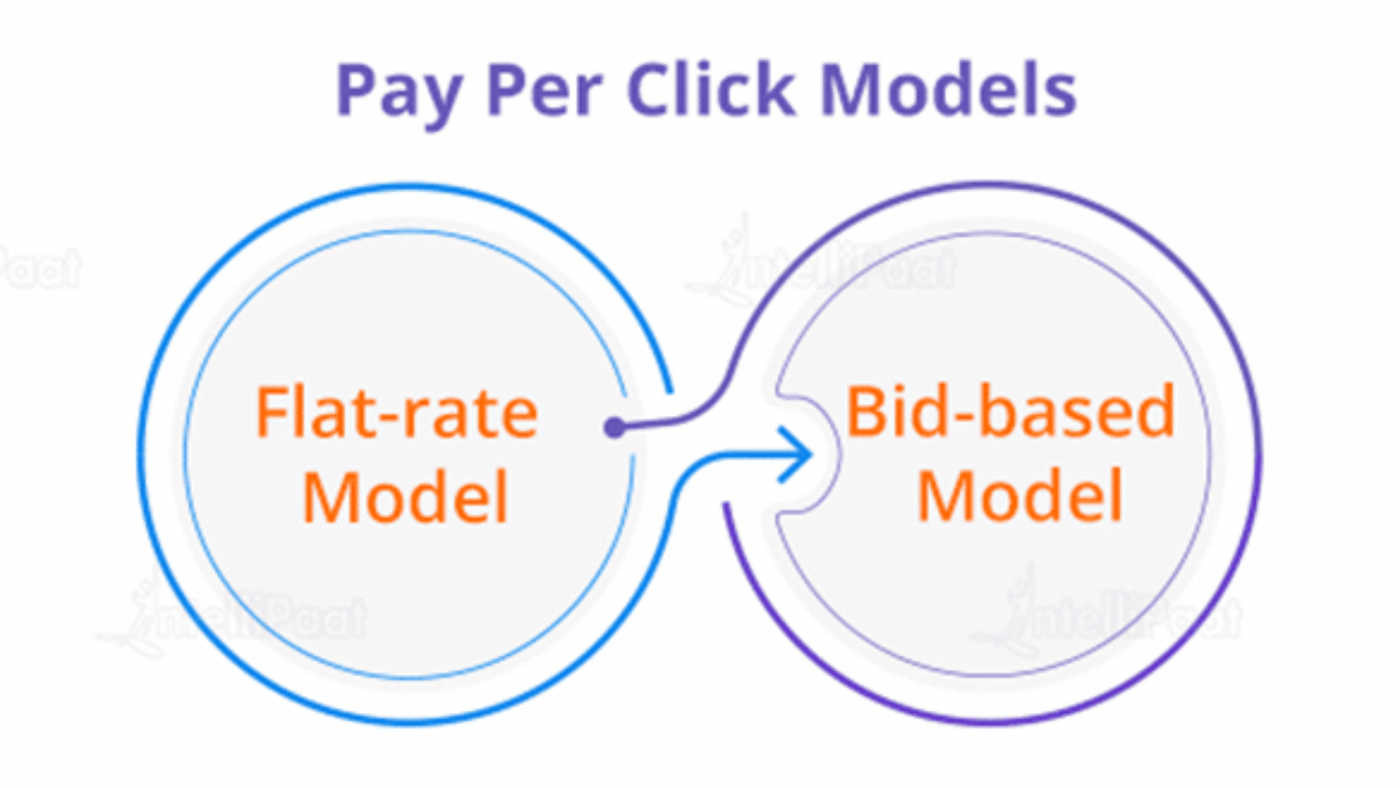
Pay-Per-Click Models
1. Flat-Rate Model
The advertiser and publisher agree on a set price that the advertiser will pay for each click under this strategy. When an advertiser uses this strategy, they usually pay a fixed charge for a predetermined amount of clicks or impressions on websites that display their ads.
2. Bid-Based Model
In this paradigm, advertisers compete with each other for specific keywords or phrases relevant to their target market. When users search for these keywords, the search engine displays ads that are relevant to their search and have bids. Typically, the search engine prioritizes ads that are most relevant and have the highest bids. The term “pay-per-click” describes the payment advertisers make when users click on their ads. This strategy is highly targeted and effective, making it a popular choice for search engine advertising.
3. Different Types of PPC campaigns and their benefits
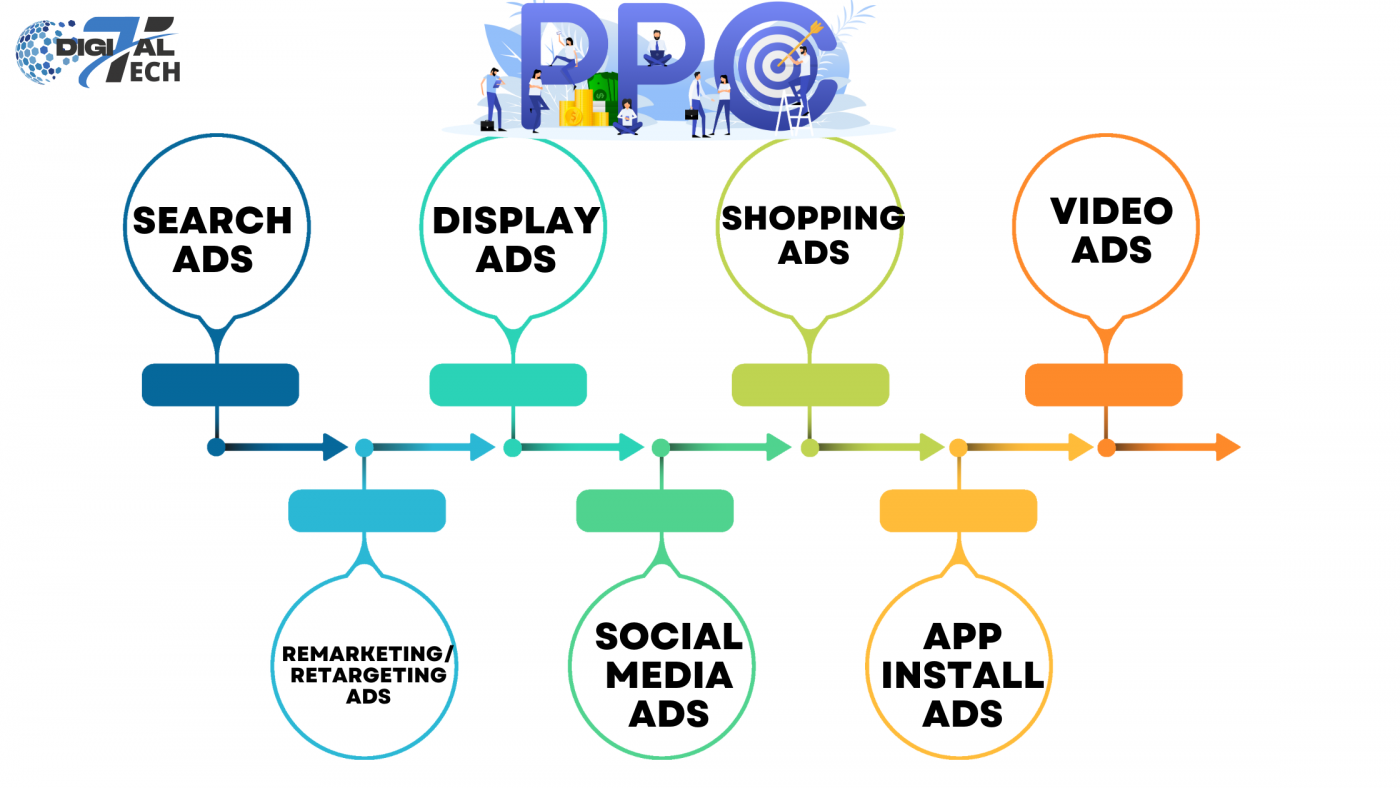
Different Types of PPC campaigns and their benefits
PPC campaigns are a powerful tool for accomplishing a variety of marketing goals and increasing targeted website traffic. PPC campaigns come in a variety of forms, each with unique advantages.
1. Search Ads
Benefit: When users type relevant keywords, search advertising appear on search engine results sites (e.g., Google, Bing). They raise the possibility of conversions by enabling advertisers to target consumers who are actively looking for particular goods or services.
Ideal for: creating leads, driving relevant visitors to particular landing pages, and direct response marketing.
2. Display Ads
Benefit: Advertising that is displayed on different websites inside the ad network can be banner, picture, or interactive advertising. They offer a wider audience, raising visibility and brand awareness.
Ideal for: spreading the word about your business, retargeting website visitors, and advertising visual assets like movies and infographics.
3. Shopping Ads
Benefit: Product-based advertisement known as “shopping ads” display pricing, pictures, and other pertinent data right on search engine result pages. They work especially well for e-commerce companies since they highlight products and draw in customers who are very likely to make a purchase.
Ideal for: Online stores trying to increase sales and highlight particular goods.
4. Video Ads
Benefit: On websites like Youtube, video advertising is displayed and has the ability to attract viewers with interesting material. They work incredibly well for brand messaging and storytelling.
Ideal for: Using visual media to showcase goods or services, telling stories, and raising brand awareness.
5. Remarketing and retargeting ads
Benefit: User who have previously visited your website but did not convert are the target audience for remarketing ads. They raise the likelihood of conversion by reminding potential customers of your brand.
Ideal for: Reiterating brand messaging, bringing in past visitors and converting bounced website visitors.
6. Social Media Ads
Benefit: Social media advertisements are shown on social media sites (like Facebook, Instagram, and Twitter) and utilize comprehensive user information to ensure accurate targeting. They give companies the ability to connect with their intended market by using their interests, behaviors, and demographics.
Ideal for: increasing brand recognition, generating leads, and interacting with particular user groups.
7. App Install Ads
Benefit: The goal of app install advertising is to encourage mobile application installations. On mobile devices, they frequently show up as sponsored content in app stores or inside other apps.
Ideal for: developers of mobile apps hoping to boost user acquisition and app downloads.
Every PPC campaign has advantages of its own, and an advertiser’s budget, target market, and specific objectives all affect how effective a campaign is. To accomplish a variety of marketing goals, combining diverse PPC methods might result in a well-rounded digital advertising strategy.
4. Top 6 Ways of Making Money Using PPC
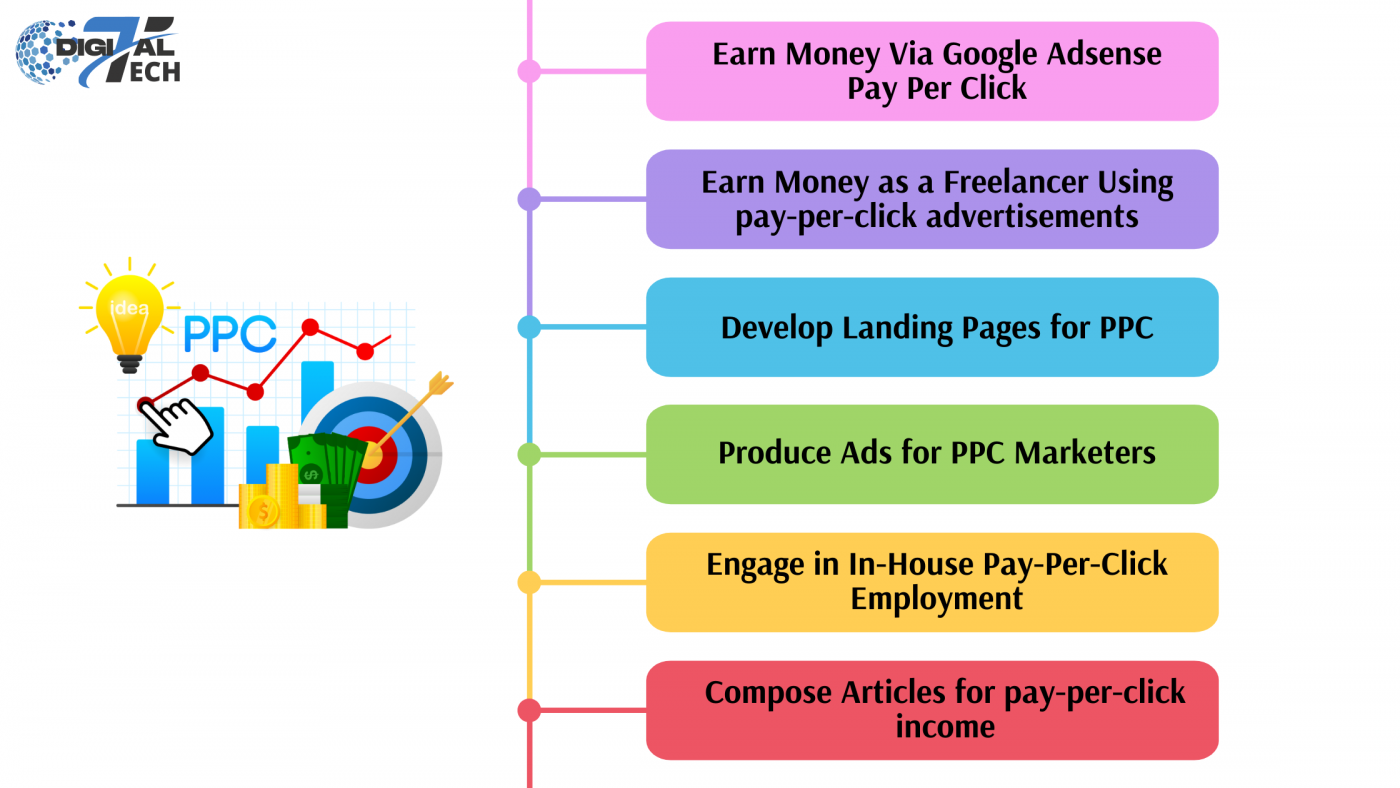
Top 6 Ways of Making Money Using PPC
1. Earn Money Via Google Adsense Pay Per Click
Pay per click can be earned through advertising networks like Google AdSense, which are among the simplest to use. Only after registering with an advertising network, however, may website owners add their code to their site. One of the greatest options is Google AdSense, but after you register, you must get approved. The more people who visit your website, the more money you make.
Revenue: For every 1000 visitors, you can make up to $30. You can earn $3 to $5 per click if the advertiser’s business is in the affiliate marketing, insurance, or web hosting categories.
2. Earn Money as a Freelancer Using pay-per-click advertisements
A number of freelance websites, including Fiverr, Upwork, and Freelancer, can help you find high-paying clients. Nevertheless, this approach necessitates positive feedback and rankings on the freelance marketplace. Additionally, you might ask friends and locals for referrals or offer your services. To estimate the amount of time and work required for a specific project, you will need to have some industry experience.
Earnings: A freelancer may bill a customer for a fixed portion of their advertising budget or a rate determined by their worth and performance.
3. Develop Landing Pages for PPC
For consistent results, landing pages and ads must work together seamlessly. Additionally, creating landing pages that convert for PPC advertisers is one way to monetize pay-per-click advertising effectively. Moreover, it is necessary to have solid knowledge on how to use landing page constructors, including:
- Unbounce
- Hubspot
- Leadpages
- Instapage
Pay: The hourly rate for a landing page creator can range from $25 to $100. The developer’s experience and the complexity of the page will determine how much they make.
4. Produce Ads for PPC Marketers
PPC ad copy has an impact on click-through rates, quality scores, and other metrics. It takes skill to write clear copy and adhere to guidelines and ad forms. Furthermore, effective ad copywriting necessitates extensive study, openness, and regular use of relevant keywords.
Moreover, income for freelancers writing ad content may vary between $40 and $60 per hour on average, depending on their background.
5. Engage in In-House Pay-Per-Click Employment
Joining a company’s marketing team is one way to earn money with pay-per-click. Moreover, an internal PPC specialist collaborates with other marketing departments and leads a team to expedite the approval process for advertisements.
In addition, they also test landing pages, develop campaigns, oversee ongoing campaigns, and recommend optimizations.
Proficiency in Facebook, Microsoft, and Google ads is required for the job, along with frequently obtaining a PPC certification. This option, unlike others on this page, ensures a set wage plus bonuses and health insurance.
6. Compose Articles for pay-per-click income
A number of well-known websites give content producers a share of the money from the ads they create. Thus, using only their writing abilities in a marketing and sales capacity, a talented writer will be able to generate passive revenue.
Content that directs viewers to the advertiser’s website is required by the industry. As the website grows, it generates more advertising revenue.
5. Benefits of PPC Marketing
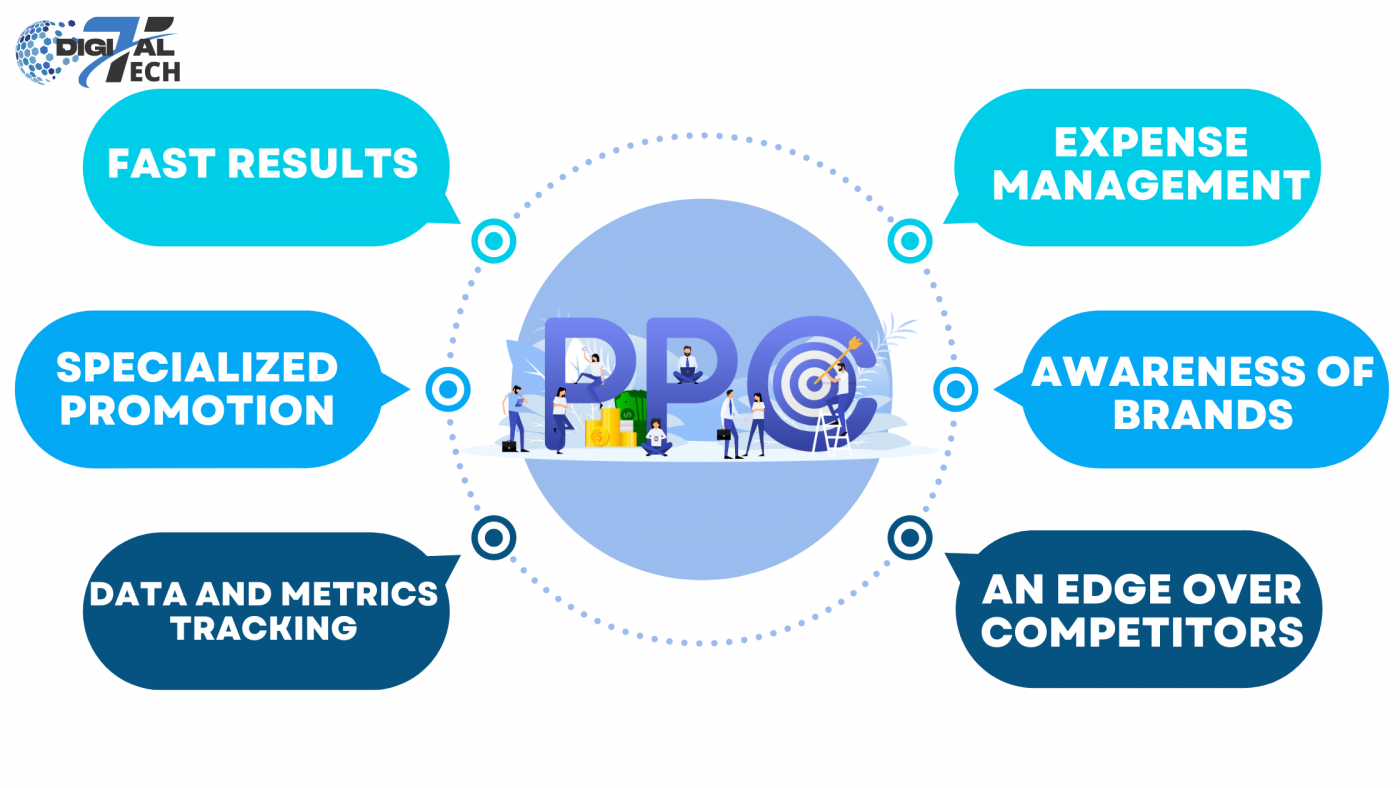
Benefits of PPC Marketing
For companies trying to boost their online presence and produce more leads and sales, PPC marketing offers a host of advantages. The following are a few possible advantages of PPC marketing:
- Fast Results
PPC advertising is a faster way to create traffic and leads than organic search engine optimization, which might take months to show results. - Specialized Promotion
With PPC, you may reach your ideal clients by targeting particular audiences according to their geography, demographics, interests, and search intent. - Data and Metrics Tracking
Information and Measurements PPC tracking offers comprehensive metrics and data for monitoring and refining campaigns, enabling you to calculate return on investment (ROI) and make informed decisions. - Expense Management
To manage your advertising spend, you can create daily or monthly budgets and make necessary adjustments based on results. - Awareness of Brands
PPC advertising can aid in raising brand awareness and recognition even in the event that users do not click on your links. - An edge over competitors
With PPC, you may outbid bigger companies and rank #1 for relevant keywords on search engine results pages (SERPs).
All things considered, PPC marketing may be a useful strategy for raising website traffic, lead generation, and sales. However, to get the best outcomes, you need strategy, experience, and constant optimization.
6. Disadvantages of PPC Marketing
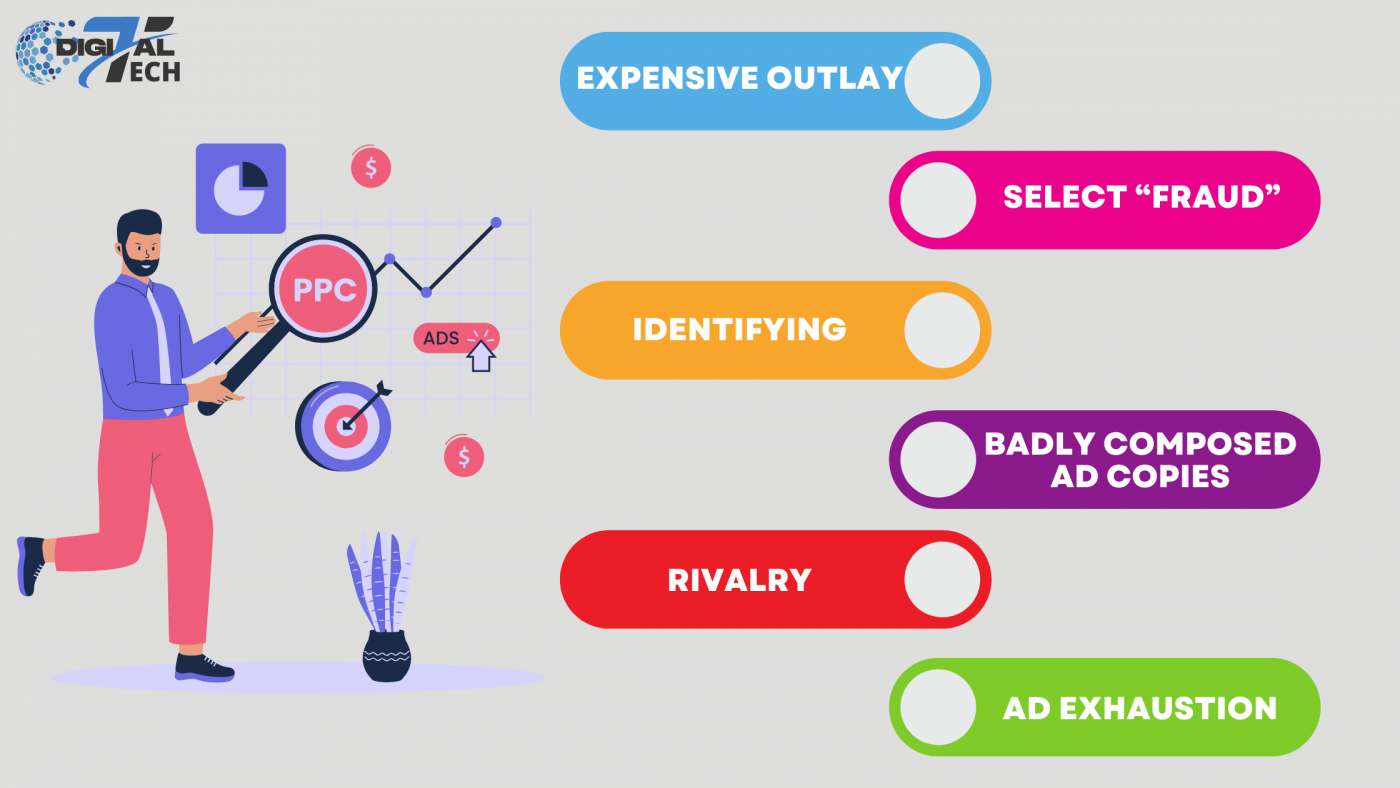
Disadvantages of PPC Marketing
The following are some of PPC marketing’s most prevalent drawbacks:
- Expensive Outlay
PPC advertising may be costly, particularly if you’re aiming for really competitive keywords. You risk spending a lot of money without getting a big return on investment if you’re careless with your budget. - Select “Fraud.”
One sort of fraud is click fraud, which happens when someone clicks on your ads repeatedly with the intention of depleting your funds. This may be an issue for companies operating in highly competitive markets or with numerous rivals. - Identifying
You run the risk of displaying your advertisements to individuals who have no interest in your goods or services if you are careless with your targeting. Consequently, clicks that are squandered and the return on investment may suffer. Moreover, when someone clicks on your advertisement, they should be directed to a landing page that is both conversion-optimized and pertinent to the advertisement. Otherwise, you can miss out on potential clients if your landing page doesn’t meet these requirements. - Badly Composed Ad Copies
The success of your PPC campaign depends heavily on the ad copy you employ. You may find it difficult to attract clicks and conversions if the copy in your ads is badly written or doesn’t appeal to your target market. - Rivalry
PPC advertising is very competitive, particularly in some markets. You might have to spend extra money to get your ads in front of the relevant individuals if your rivals are also utilizing PPC advertising. - Ad Exhaustion
People might grow weary of seeing your advertisements over time and begin to ignore them. A reduced click-through rate and return on investment may result from this.
